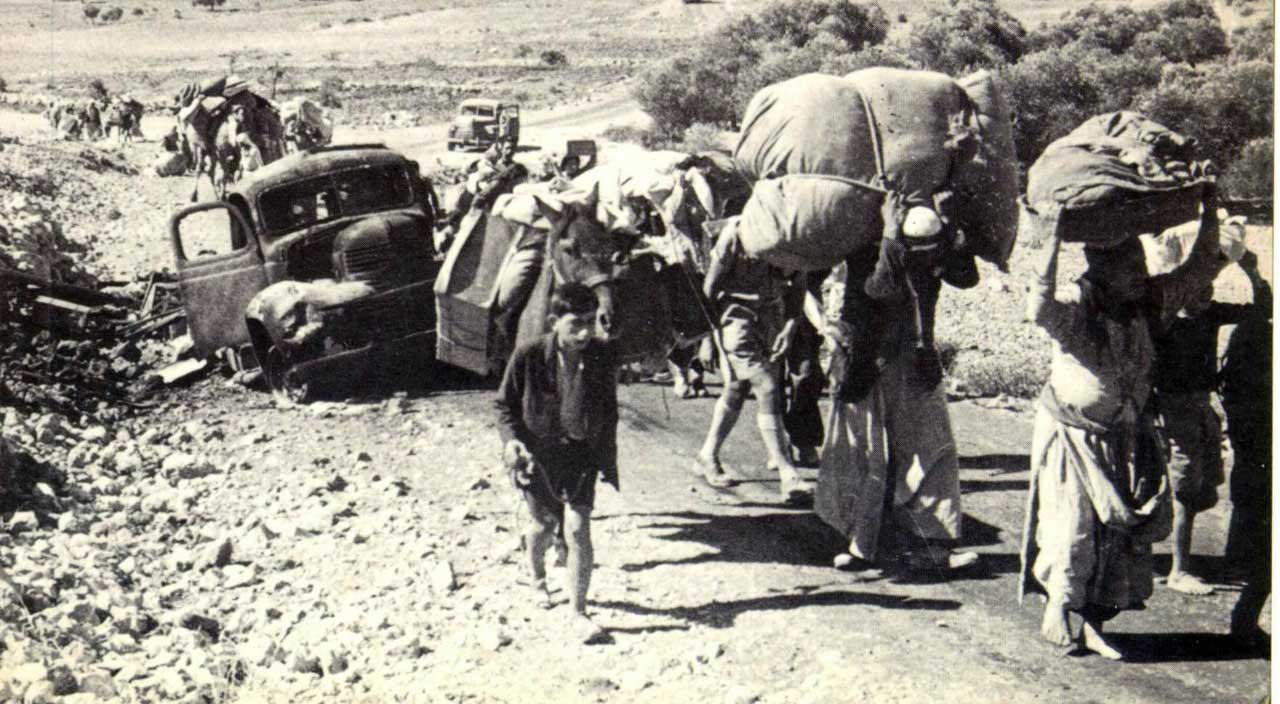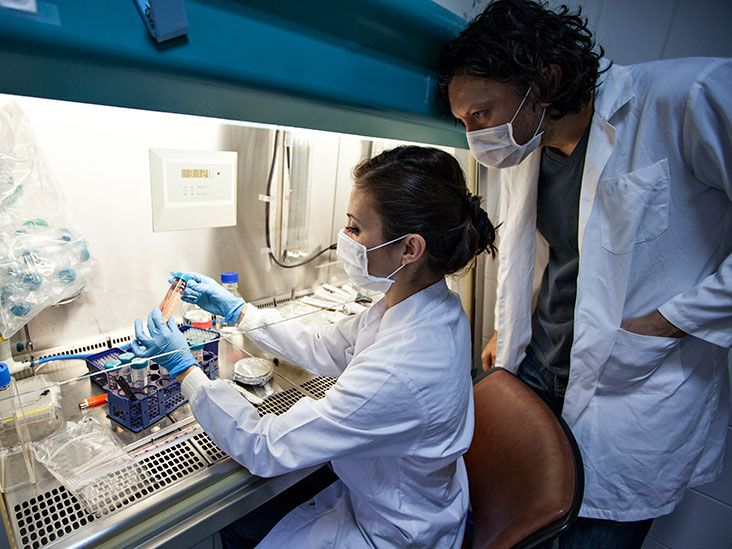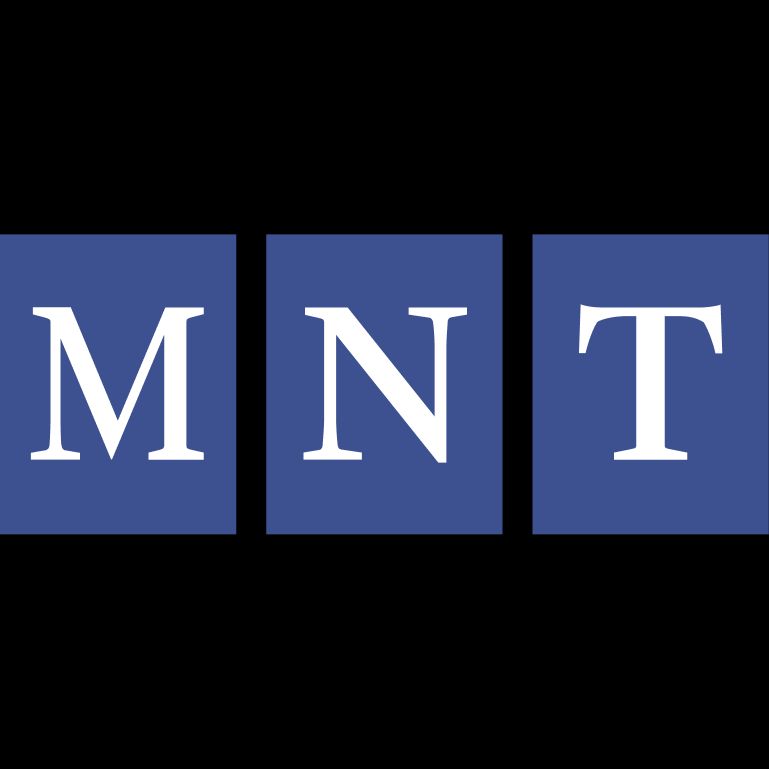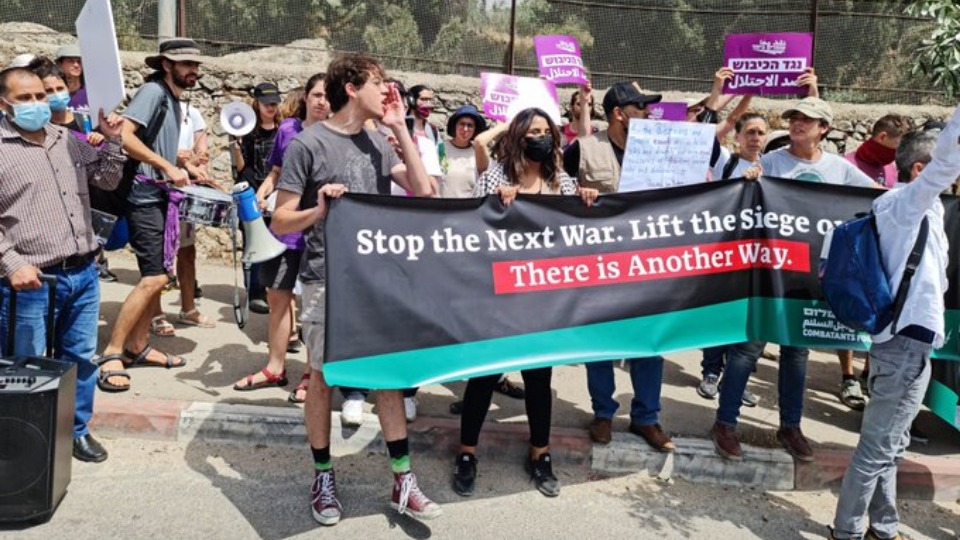Over the past two years, Scientific Americanhas published a series of biased attacks on Israel, even
accusing Israel of “vaccine apartheid and medical apartheid.” Such actions are not surprising considering that in 2021, a Senior Editor at Scientific American
tweeted that “Israel is an apartheid state and Zionism is white supremacy. #FreePalestine.”
As
I wrote last week in The Algemeiner, a June 2, 2021, column — titled “As Health Care Workers, We Stand in Solidarity with Palestine” — was
removed from the Scientific American website just hours after the publisher received a letter signed by more than 106 scientists and physicians, including three Nobel Laureates.
THE
LETTER CRITICIZED SCIENTIFIC AMERICANEDITORS FOR PUBLISHING “ONE-SIDED POLITICAL PROPAGANDA,” IGNORING “EASILY VERIFIED FACTS,” AND COVERING “IMPORTANT HISTORICAL AND POLITICAL ISSUES SUPERFICIALLY, INACCURATELY, AND PREJUDICIALLY.” A FULL TEXT OF THE NOW REMOVED COLUMN IS AVAILABLE
HERE.
(full article online)
Over the past two years, Scientific American has published a series of biased attacks on Israel, even accusing Israel of “vaccine apartheid and medical apartheid.” Such actions are not surprising considering that in 2021, a Senior Editor at Scientific American tweeted that “Israel is an...

www.algemeiner.com
NEWSLETTER
COVID-19 vaccine rollout in Israel: Successes, lessons, and caveats
Israel is a world leader in the race to roll out the COVID-19 vaccine. In this Special Feature, Medical News Today look at why the vaccine rollout has been so successful in Israel and discuss the controversies and equity issues related to the campaign.
EMMANUEL DUNAND/Getty Images
All data and statistics are based on publicly available data at the time of publication. Some information may be out of date. Visit our coronavirus hub and follow our live updates page for the most recent information on the COVID-19 pandemic.
While the United States has struggled to meet COVID-19 vaccine rollout goals, within just 2 weeks, Israel vaccinated almost 15% of the country’s population of more than 9 million.
As of January 19, 2021, 25.6% of the Israeli population have received their first vaccine dose, and 550,000 people have received both doses.
To give some perspective, Israel is vaccinating residents at a rate of 32.4 people per 100, compared with 4.8 people per 100 in the U.S., and 7 per 100 in the United Kingdom.
But why exactly has the rollout been so successful in Israel? And what can we learn from this early success? In this Special Feature, we review what is known about Israel’s COVID-19 vaccine rollout.
Stay informed with live updates on the current COVID-19 outbreak and visit our coronavirus hub for more advice on prevention and treatment.
Early rollout successes
Israel’s success in rolling out the COVID-19 vaccine seems to be due to several factors influencing the access to and distribution of the vaccine.
The Israeli government started searching early on for a way to secure vaccine doses.
In June 2020, Israel became one of the first countries to sign a purchase agreement for a vaccine supply from Moderna. In November, the country announced additional vaccine deals with AstraZeneca and Pfizer.
The first Pfizer vaccine doses arrived in Israel on December 9, 2020, and vaccinations began on December 19, 2020. The country is still waiting for the other two vaccines.
Israel’s government also allegedly agreed to pay top dollar for vaccines and purchase millions of doses. Although the exact price is unknown, one official said that the price was about $30 per vaccine — double the average price abroad.
The makers of the vaccine that Israel is currently using — U.S. company Pfizer and German partner BioNTech — would not comment on the cost of the vaccine.
In exchange for an early, steady vaccine supply, the Israeli government also assured Pfizer that the country’s rollout would offer quick, large-scale results, promising to give the company detailed patient information on those receiving the vaccine in Israel.
Israeli officials expected Israel’s vaccine rollout to be successful because the country is small but has a vast healthcare infrastructure. The country also has a well-developed, universal healthcare system that connects all residents to a national digital health network.
All residents also have insurance from semi-private healthcare maintenance organizations (HMOs) that run services throughout the country, even in rural, remote regions.
Israel’s centralized, digitized system makes it easier to track and access information and roll out national healthcare agendas, such as vaccination campaigns.
“In a sense, Israel has become like a very large clinical trial,” Hadassah Medical Center virologist Dr. Rivka Abulafia-Lapid told The Times of Israel.
“Because everyone in Israel belongs to an HMO, and their records are kept along with their background data, this means we’ll get a good picture of responsiveness to the vaccine, in context of age, gender, and existing medical conditions,” Dr. Abulafia-Lapid added.
Distribution successes
Israel’s vaccine rollout success is also due in part to the handling of the vaccine and its delivery to citizens.
Those responsible for logistics have stored the vaccine doses underground near Israel’s main airport. They are in 30 large freezers, which are capable of holding 5 million doses.
Teams in Israel have also developed a way to repack doses from large, ultra-frozen pallets into insulated boxes roughly the size of a pizza box. Doing this has made it easier to distribute vaccine doses in smaller numbers and to remote sites.
Teams repack large vaccine pallets into bundles containing as few as 100 doses, which they then deliver to 400 vaccination centers. Healthcare professionals have also managed to obtain more vaccine doses out of each vial than Pfizer had initially advertised.
Pfizer have approved both of these processes.
Some 335 drive-through vaccination clinics also exist throughout Israel, allowing healthcare professionals to vaccinate larger groups of people quickly. On January 19, 2021, the country announced a new daily record of more than 210,000 vaccinations in 1 day.
Israel began vaccinating healthcare workers, teachers, people with medical conditions, and those over the age of 60 years. Now, the country is racing to vaccinate the entire population over the age of 16 years — equating to about 5.2 million people — by the end of March. As of January 20, Israel has started vaccinating residents over the age of 40 years.
At the time of writing, Israel has given at least one dose of the vaccine to more than 76% of the country’s inhabitants who work as teachers, are over the age of 60 years, or have health risks.
ADVERTISING
CORONAVIRUS NEWS
Stay informed about COVID-19
Get the latest updates and research-backed information on the novel coronavirus direct to your inbox.
Enter your email
Your privacy is important to us
Controversies
Despite these achievements, some people in Israel are regularly demonstrating against the government’s handling of the pandemic.
Hailed as a way to restore normalcy — and save the economy — the government calls the COVID-19 vaccine rollout “Operation Back to Life.” Prime Minister Benjamin Netanyahu claims that it will allow Israel to become the first country in the world to emerge from the pandemic.
However, it is less clear precisely how and when Israel will be able to revert to so-called normal life.
On January 19, the country reported a record high of more than 10,000 new cases of COVID-19 in a single day and a positivity rate above 10% for the first time in 3 months. Also, 30–40% of new cases are linked to the new COVID-19 variant that scientists first recognized in the U.K.
Israeli, currently in its third lockdown, also faces high levels of unemployment and a recession, but the authorities have extended the current nationwide lockdown until at least January 31.
Netanyahu’s political opponents also accuse the government of using the vaccine campaign for political gain before the upcoming election.
The country is on track to vaccinate everyone over the age of 16 years just 3 days before the election on March 23. In addition, the government is discussing postponing the election if infection rates stay high.
The government is also receiving criticism for not sharing enough details about what patient data it will share or how Pfizer will use the information.
Government officials only recently disclosed some terms of the deal, claiming that it will only share general data with Pfizer, such as data about the numbers of cases, serious cases, fatalities, and vaccinations, and each individual’s age and gender.
They also say that the data will help researchers assess and track herd immunity, with the results to feature in a recognized medical journal.
But Tehilla Shwartz Altshuler, a senior fellow at the Israel Democracy Institute, expressed her worries that anonymized patient data, including complete medical histories, will be shared.
Although they will not bear patient names or identifying markers, she said that it is possible to de-anonymize the files. Treating these personal data as though they belong to the government in this way is “not ethically, not legally, and not morally
,” she added.
MEDICAL NEWS TODAY NEWSLETTER
Knowledge is power. Get our free daily newsletter.
Dig deeper into the health topics you care about most. Subscribe to our facts-first newsletter today.
Enter your email
Your privacy is important to us
Health equity issues
According to human rights groups, Palestinians living in the Israeli-occupied West Bank and Gaza Strip do not have access to the vaccine and will not for a long time. Under the 4th Geneva Convention, occupying forces must provide healthcare to the populations of the territories they occupy.
Yet Palestinian officials seem reluctant to make a formal request to Israel to provide the vaccine, likely because asking for help from Israel is politically sensitive.
Also, the Oslo Peace Accords of the 1990s, which were meant to be a temporary road map to develop a Palestinian state, gave Palestinians responsibility for their healthcare.
Israel’s health minister reportedly told Sky News that the Palestinians simply need to “learn how to take care of themselves.”
He said that Israel has provided advice, supplies, and medicine to its neighbors, adding that it is in Israel’s best interest to reduce Palestinian case numbers, as many Palestinians work in Israel.
But some international organizations condemn Israel’s failure to provide the vaccine equitably.
According to Saleh Higazi, Amnesty International’s deputy regional director:
“Israel’s COVID-19 vaccine program highlights the institutionalized discrimination that defines the Israeli government’s policy toward Palestinians. There could hardly be a better illustration of how Israeli lives are valued above Palestinian ones.”
The Palestinian government has arranged for vaccine shipments from four companies that should arrive this quarter. The state may also start receiving doses in February from the World Health Organization’s (WHO) vaccine schemeTrusted Source for low-to-middle-income countries.
Another issue complicating the vaccine rollout is the reluctance and fear among the country’s Arab and Orthodox populations regarding the vaccine and pandemic restrictions.
Vaccination rates are low among the Arab community in Israel.
Ultra-Orthodox communities are registering record high numbers of new cases of COVID-19. There are also reports of lax preventive restrictions in these communities, with some schools remaining open and multiple reports of large gatherings.
On January 20, the government announced the launch of a campaign to educate the Ultra-Orthodox community about pandemic risks and the importance of following the rules.
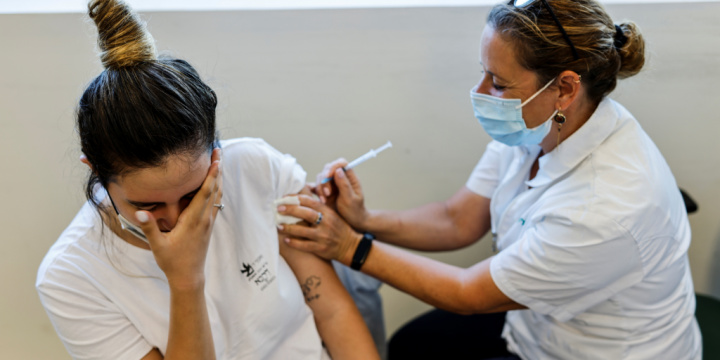
www.algemeiner.com
